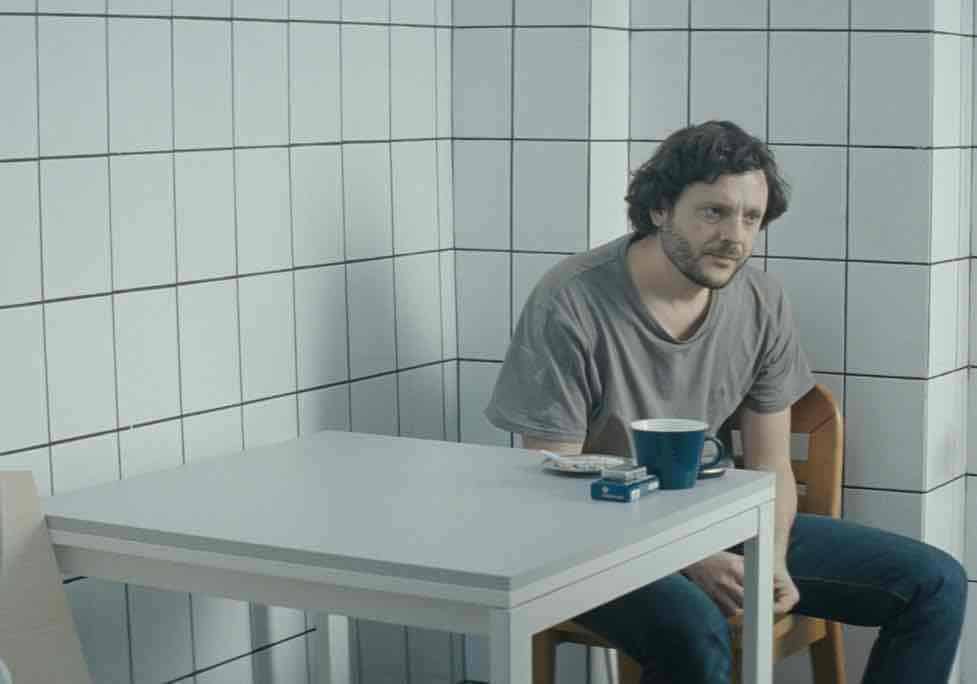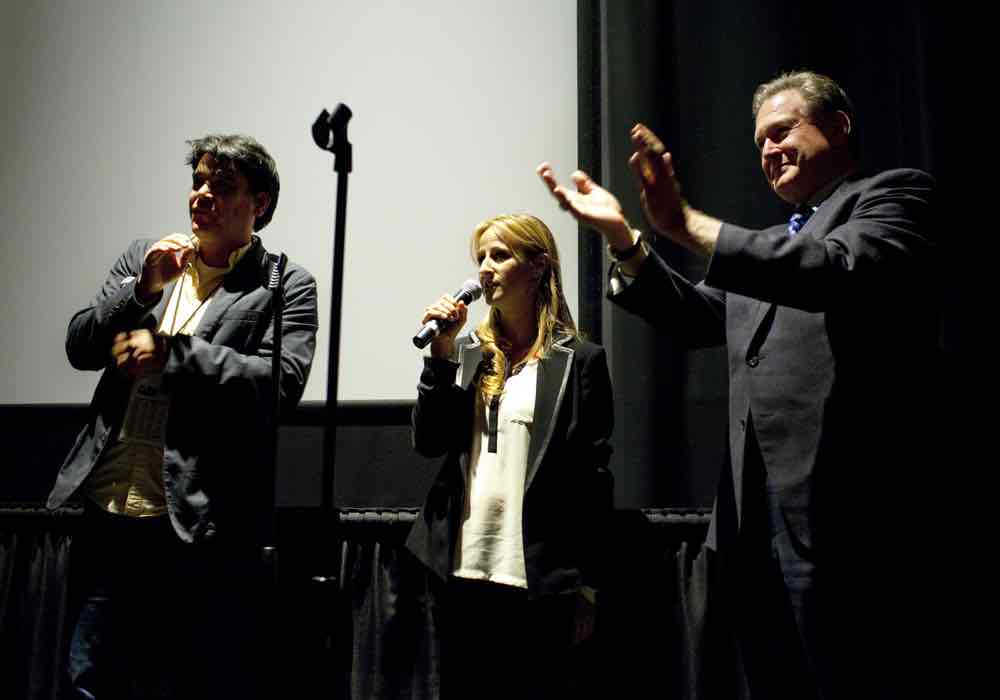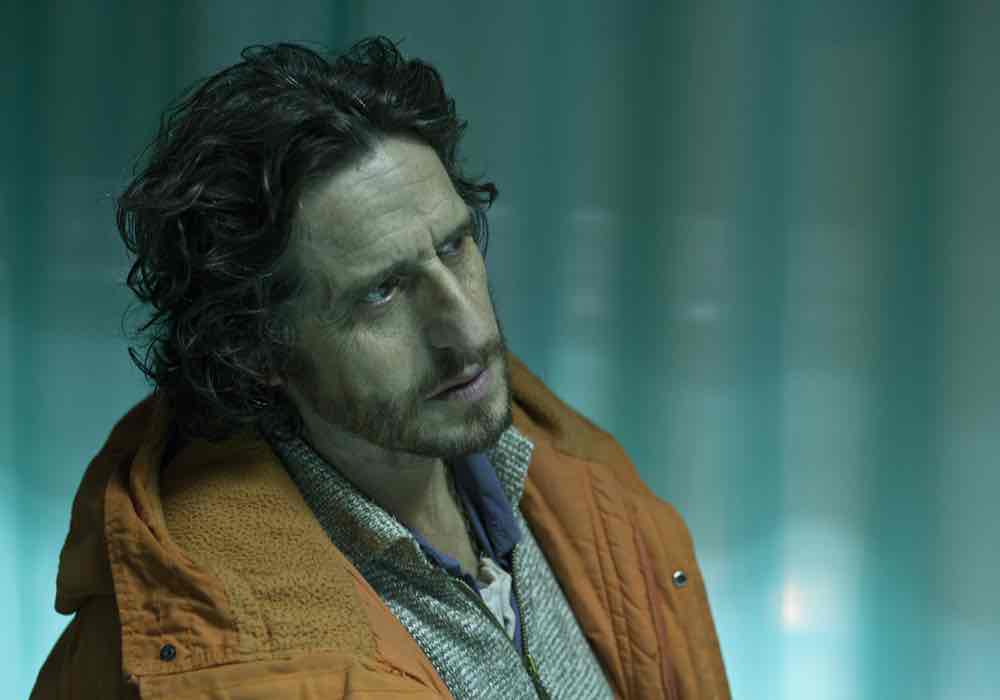When Evening Falls on Bucharest or Metabolism

The best argument for shooting on celluloid in the digital age gets made in the Romanian film When Evening Falls on Bucharest or Metabolism, which screened Friday at SFIFF. In the first scene, Paul (Bogdan Dumitrache), a young director, explains that he prefers film because it has the built in constraint that a film roll can only capture eleven minutes, meaning any uncut section of it can’t surpass this limit. As Bucharest is also shot on film, there’s a comfort in knowing that a slow or awkward scene can’t go on forever, as it might if it were shot digitally. Writer-director Corneliu Porumbolu favours long takes with a still camera and abrupt aesthetic changes between scenes – from the black of night to a white room in bright daylight – to keep us acutely aware that we’re watching a film and a scene change.
We may be watching minutiae – Paul smoking a cigarette, or having a tame conversation with the actress in his film with whom he’s having an affair, Alina (Diana Avramut) – but Porumbolu keeps us acutely aware that it is highly curated. This is a very meta film, with each scene instructing you how to watch the next, or forcing you to revise how you interpreted the previous one. And Porumbolu finds compelling ways to pass the time. Whether it’s the in-depth discussion between Paul and Alina about her character’s motivation while rehearsing a silent scene, which seems like an excuse for gratuitous nudity, or an exasperating argument about whether the utensils used to eat food in a given country influence its cuisine.
Fed Up

Next, I saw Fed Up, the engrossing American documentary about the obesity epidemic, which premiered at Sundance in January. Director Stephanie Soechtig and the film’s scientific advisor stuck around for a Q&A after the screening. The film will appeal to the same audience that enjoys the self-righteous indignation that accompanies any Michael Moore film. The film’s prime focus is in sparking outrage about how obesity is affecting our youth and how big processed food companies are largely to blame, along with the US government’s inability to stand up to the food lobby.
Ironically, the nationwide school lunch program, a relic of post-World War II legislation, created to circumvent the malnutrition that led to so many men being rejected from the army, is a major culprit: schools feed children junk food, because it’s highly subsidized by the companies that provide it. This sparks a life-long addiction to sugar, which is even more addictive than cocaine. But the film doesn’t dig deep enough to look at the underlying structures of American society that enable all of this to happen: would universal public health care change the government’s willingness to legislate to prevent high medical costs going forward?
The Reconstruction

Much like When Evening Falls On Bucharest, I don’t think I would have been able to make it through Argentinian drama The Reconstruction on a television: they both take their time so the big screen and the intense focus you get from being in a cinema with an audience are necessary. What a treat it was to see them both in beautiful digital projection at the New People Cinema in San Francisco. Given its title and central character —Eduardo (Diego Peretti) is a notorious curmudgeon, who finds himself in Patagonia helping out a friend and his family who are going through a difficult time — where The Reconstruction is headed is obvious: by interacting with his friend’s wife and daughters, the gruff and taciturn Eduardo will soften.
But director Juan Taraturo finds something deeper and touching along the way: Eduardo has much pain, which has led him to keep his emotions bottled up. When he finally unleashes them and deals with them, it’s surprising and rewarding how vulnerable he becomes. Set in the winter in a scenic tourist town in the Patagonia region in southern Argentina, this cold but beautiful place proves the perfect destination to warm some hearts, including ours. The Reconstruction was not without its flaws, like some cliched plot devices: Eduardo is about to leave the family in the middle of a crisis, driving back home, only to change his mind and make a literal U-Turn. It may take its time, but The Reconstruction will ultimately win you over, even if it’s a fairly minor work

